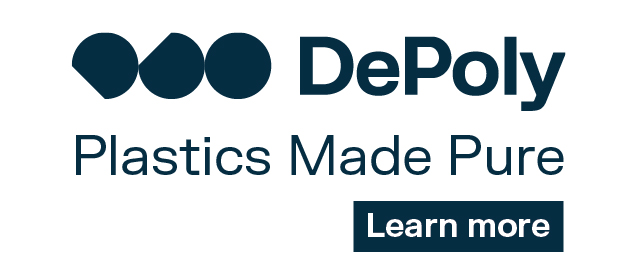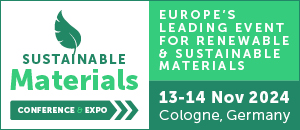
A new work published in Nature Communications by the group of Dr. Federica Bertocchini at Centro de Investigaciones Biológicas Margarita Salas (CIB-CSIC) demonstrates how the saliva of wax worm species of Galleria mellonella contains enzymes able to degrade plastics. The discovery of these enzymes, which belong to the phenol oxidase family and can rapidly set off polyethylene, opens up an array of applications for treating or recycling plastic waste.
Polyethylene is one of the toughest and most widely used plastics. Together with polypropylene and polystyrene, it makes up 70% of total plastic production. Plastic pollution poses a threat to the planet’s health and environment and biodegradation by microorganisms such as bacteria and fungi is proposed as a possible solution to tackle the plastic waste problem. However, to date, only a handful of microorganisms are known to break down the tough plastic polymers forming polyethylene, and, in most cases, aggressive pre-treatment is needed to guarantee oxidation and thus enable the micro-organisms to exert some effect on the plastic.
“For plastic to degrade, oxygen must penetrate the polymer (the plastic molecule). This is the first step in oxidation, which is usually a result of exposure to sunlight or high temperatures, and represents a bottleneck that slows down the degradation of plastics like polyethylene, one of the most resistant polymers,” explains Bertocchini. “That is why, under normal environmental conditions, plastic takes months or even years to degrade,” she adds.
These enzymes that have been now discovered are the first and only known enzymes capable of degrading polyethylene plastic by oxidizing and breaking down the polymer very rapidly (after just a few hours of exposure) without requiring pre-treatment and work at room temperature.
Sanluis-Verdes et al. analyzed the saliva using electron microscopy and observed a high protein content from which two enzymes were isolated and identified. These two proteins, Demetra and Ceres, belong to the family of phenol oxidase enzymes.
Researchers have found that the Demetra enzyme had a significant effect on polyethylene, leaving marks (small craters) on the surface of the plastic, visible to the naked eye. Additionally, degradation products are formed after exposure of the polyethylene to this enzyme. The Ceres enzyme oxidizes the polymer too but does not leave visible marks, suggesting that the two enzymes have a different effect on polyethylene.
Mechanisms by which these enzymes are able to degrade plastic are still unknown and more research combining insect biology with biotechnology is required.
Röchling Foundation partly funded the study (Germany) which is the result of a collaboration of the CIB’s groups of Federica Bertocchini, Ernesto Arias, and María Montoya, together with the Institut de Biologia Molecular de Barcelona, the University of Burgos, Sequentia Biotech SL, the University of Basilicata and the University of Cantabria.
Reference
Wax worm saliva and the enzymes therein are the key to polyethylene degradation by Galleria mellonella. A. Sanluis-Verdes, P. Colomer-Vidal, F. Rodríguez-Ventura, M. Bello-Villarino, M. Spinola-Amilibia, E. Ruiz-López, R. Illanes-Vicioso, P. Castroviejo, R. Aiese Cigliano, M. Montoya, P. Falabella, C. Pesquera, L. González-Legarreta, E. Arias-Palomo, M. Solà, T. Torroba, C.F. Arias, F. Bertocchini (2022) Nature Communications. DOI: 10.1038/s41467-022-33127-w
Source
CSIC, press release, 2022-10-04.
Supplier
CIB Centro de Investigaciones Biológicas
Nature Communications
Röchling Stiftung
Sequentia Biotech SL
Spanish National Research Council (CSIC)
University Degli Studi Della Basilicata (University of Basilicata)
University of Burgos
University of Cantabria
Share
Renewable Carbon News – Daily Newsletter
Subscribe to our daily email newsletter – the world's leading newsletter on renewable materials and chemicals


















